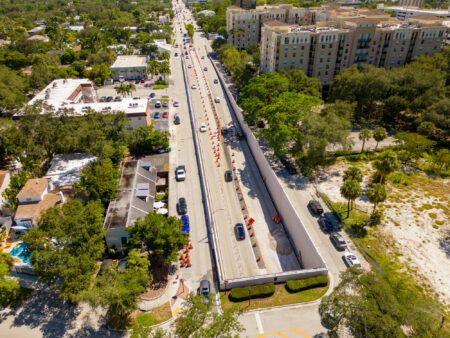Transport for London (TfL) has awarded Siemens Mobility Limited a 10-year contract to deliver a world-leading upgrade to the UK capital’s road network management system.
The new Real Time Optimizer (RTO) system will revolutionize the current traffic light control system that has been keeping London moving for over 30 years. It will help TfL make much better use of the road space by optimizing the traffic light timings to enable more people and goods to move on the city’s road network with fewer delays. When the road network is disrupted by an unplanned incident, planned work or events, TfL’s 24/7 control center will have a more sophisticated tool to help return the road network back to normal as quickly as possible.
London already has an extensive network of traffic lights controlled by the SCOOT (Split Cycle Offset Optimization Technique) system, which was originally developed by the UK’s Transport Research Laboratory (TRL) for the Department for Transport in 1980. The latest version of SCOOT uses sensors to detect traffic and adjust the signal timings to manage queues and give buses priority if they are running late. This alone keeps traffic delay 13% lower than it would otherwise be. New sensors to balance signal timings for cyclists and pedestrians are being introduced, but the current system is struggling to optimize effectively for everyone.
The new RTO technology will be able to take in a range of new data sources, connect to new types of sensors and support innovation, including sharing data with connected vehicles, which could also include autonomous vehicles in the future. Data generated by the system can then be used to better inform road users of current or expected road conditions to support improved journey planning. Working closely with TfL, Siemens will develop and maintain the new system, which will be pivotal in achieving TfL and the Mayor’s Healthy Streets Approach for London, which aims to improve air quality, reduce congestion, and make sustainable travel more appealing and accessible to everyone.
The RTO contract allows for ongoing development of the system throughout the duration of the partnership to maximize its potential benefits and ensure a market-leading product. The RTO system will be made commercially available to other organizations, with TfL benefitting from future sales revenues, which will be reinvested back into London’s road network.
“This world-leading new traffic management system will be a game-changer for us in London,” commented Glynn Barton, TfL’s director of network management. “It will use new data sources to better manage our road network, tackle congestion, reduce delay for people choosing healthier travel options, and improve air quality. And by providing our control center with a tool that supports more effective incident response, everyone will benefit.”




